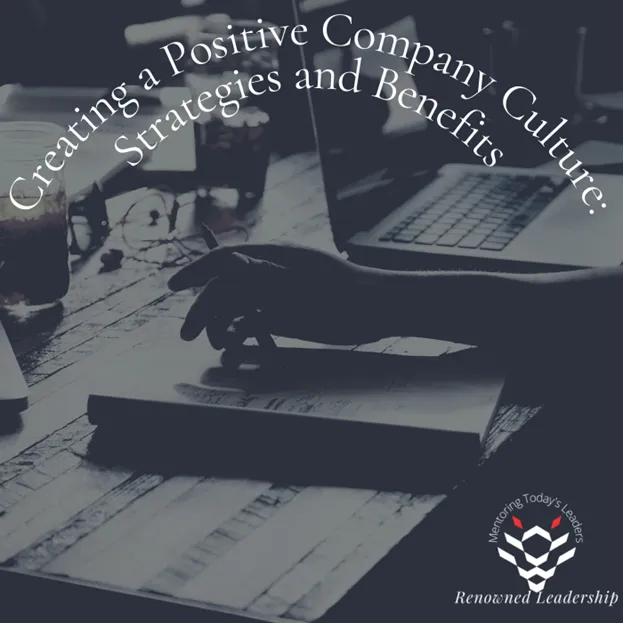Elevate Your Leadership
At Renowned Leadership, we provide you with the tools and strategies to build elite, high-performing teams through the 3 C's of leadership: Community, Consistency, and Clarity. Our personalized coaching helps you enhance communication, foster a positive work environment, and achieve sustainable success.
Elevate Your Team

We believe in the transformative power of our Purposeful Success program. That's why we offer a 14-day money-back guarantee. If you're not completely satisfied with our coaching, simply let us know within 14 days, and we'll refund your money – no questions asked.
Conquer Burnout
and Lead with Confidence
At Renowned Leadership, we help you overcome burnout, enhance communication, and foster a positive work environment. Our tailored strategies and tools are designed to transform your leadership approach.
Empower yourself to lead effectively and build cohesive teams.

Foster a Strong Community
Ensure Consistent Leadership
Gain Clarity in Your Vision

What Our Clients Say
"My coaching with Stephen has been so impactful to me personally because of how holistic it has been. Not only have I learned and grown in the areas I hired Stephen for with my business, but I've also learned to grow as a person through his mentorship and the way his coaching program forced me to take a hard look in the mirror first." Andrew S.

What Our Clients Say
"My coaching with Stephen has been so impactful to me personally because of how holistic it has been. Not only have I learned and grown in the areas I hired Stephen for with my business, but I've also learned to grow as a person through his mentorship and the way his coaching program forced me to take a hard look in the mirror first."
Andrew S.

Harness the Power of Community, Consistency, and Clarity to Drive Success
At Renowned Leadership, we provide you with the tools and strategies to build elite, high-performing teams through the 3 C's of leadership
Community:
Build strong connections to foster a supportive environment.
Consistency:
Develop reliable habits and actions to inspire confidence.
Clarity:
Understand your goals
and articulate them effectively to lead with impact.

Our Promise to You
We are committed to guiding individuals who face leadership challenges such as burnout, poor communication, and team cohesion issues. With our expertise and personalized approach, we'll help you unlock your full potential and lead with integrity. Empower yourself to achieve lasting success in your personal and professional life.
Unlock Your Potential
Struggling with challenges such as burnout, communication barriers, or team cohesion issues?
Identify Your Challenges: Understand and address your specific pain points.
Set Clear Goals: Establish actionable objectives to guide your progress.
Receive Expert Guidance: Get personalized advice tailored to your needs.
Transform Your Life: Implement strategies that drive lasting success and high-performing teams.
The Resilient Leader

Building a Positive Company Culture: Benefits, Strategies, and Practical Tips
“By prioritizing a positive company culture, you can create a work environment where employees are happy, motivated, and engaged and where your organization can thrive.” - Stephen J. Morris
Introduction:
Building a positive company culture can have many benefits, including improved employee engagement, retention, and productivity. In addition, when employees feel that their work is meaningful and that they are part of a community, they are more likely to be motivated to do their best work and to stay with the organization for the long term.
There are many ways that organizations can work to build a positive company culture. Some strategies include establishing clear values and expectations, promoting open communication and collaboration, recognizing and rewarding employee contributions, providing opportunities for professional growth and development, and fostering a sense of community and belonging among employees.
In this blog post, we will explore why building a positive company culture is essential and provide practical tips for how organizations can create and sustain a positive culture that benefits employees and the organization.

"...building a solid company culture is not a one-time task but a continuous effort..."- Stephen J. Morris
What is Company Culture?
Company culture is the collection of values, beliefs, attitudes, and behaviors that shape how people within an organization interact with each other and the outside world. A positive company culture is one in which employees feel engaged, valued, and supported and where they share a common sense of purpose and direction.
Creating a positive company culture starts with identifying the core values necessary to your organization and then actively promoting and reinforcing those values through your actions and policies. This includes fostering a sense of community and collaboration, providing opportunities for growth and development, recognizing and rewarding employees for their contributions, and promoting work-life balance. By prioritizing a positive company culture, you can create a work environment where employees are happy, motivated, and engaged and where your organization can thrive.
The Benefits of a Positive Company Culture
Improved employee engagement and motivation: Improved employee engagement and motivation are critical benefits of a positive company culture. Employees who feel their contributions are valued and recognized are more likely to be engaged and motivated in their work. They are also more likely to stay with the company for a longer period of time, reducing turnover costs and maintaining a stable workforce.
Increased productivity and creativity: A positive company culture can also lead to increased employee productivity and creativity. Employees who feel engaged and valued are more likely to be motivated to perform at their best and develop innovative ideas. In a positive company culture, employees are often given the freedom to take risks and try new things, which can lead to breakthroughs and improvements in the workplace. Additionally, a supportive and collaborative culture can encourage employees to collaborate and share ideas, leading to more effective problem-solving and decision-making. All of these factors contribute to increased productivity and creativity, which can ultimately benefit the organization as a whole.
Higher retention rates and reduced turnover: A positive company culture can also lead to higher retention rates and reduced turnover. When employees feel engaged, valued, and supported in their work environment, they are likelier to stay with the company for the long term. This can reduce turnover costs, such as recruitment and training expenses, and contribute to a more stable and experienced workforce. Additionally, a positive company culture can lead to increased loyalty from employees, who may become advocates for the company and help to attract top talent through positive word-of-mouth. Overall, creating a positive company culture can significantly impact employee retention and the organization's success.
Improved reputation and branding: A company with a positive and strong culture can help enhance its reputation and branding. A positive company culture can reflect the company's values, ethics, and principles and be attractive to customers and potential employees. As a result, a company with a good reputation for its culture is more likely to be seen as a desirable workplace, which can help attract top talent. In turn, this can lead to a positive growth cycle, as the company attracts and retains high-quality employees who are committed to its values and goals and are motivated to help the company succeed. Additionally, a company with a strong culture may be more likely to have loyal customers who support its products or services because they align with its values and mission.
Positive impact on customer satisfaction: When a company has a positive culture, it not only affects its employees but also positively impacts its customers. Employees who feel valued and supported are likelier to provide better customer service and positively interact with customers. This can lead to increased customer satisfaction, loyalty, and advocacy, positively impacting the company's reputation and bottom line. Additionally, customers may be more likely to support a company with a positive reputation for treating its employees well and a strong culture.
How to Build a Positive Company Culture
Define your values and communicate them to employees: Defining your company's values is crucial in building a positive company culture. Values are the guiding principles that help organizations make decisions, set priorities, and determine how they treat their employees, customers, and stakeholders. Take the time to define and communicate your values to your employees. This helps create a shared sense of purpose and direction and ensures that everyone is aligned around the same goals and principles. In addition, ensure that your values are reflected in your company's policies and practices and consistently reinforced through actions and behaviors.
Hire for cultural fit: Hiring for cultural fit means identifying candidates whose values and behaviors align with the company culture. When employees share common values and attitudes, they are more likely to work together effectively and support each other in achieving company goals. To hire for cultural fit, it's essential to clearly define the company culture and values and use them as criteria during the hiring process. This can involve assessing candidates' behavior, values, and attitudes during interviews and even asking specific questions related to company values.
Encourage open communication and transparency: Encouraging open communication and transparency is crucial to building a positive company culture. When employees feel free to express their ideas, concerns, and feedback, they become more engaged and invested in the organization's success. To foster open communication, companies can hold regular town hall meetings, encourage one-on-one meetings between managers and employees, and establish communication channels that encourage feedback and dialogue. Transparency is also a paramount aspect of building a positive company culture. When leadership is transparent about company goals, performance, and decision-making processes, employees feel more connected to the organization and can align their efforts accordingly. Transparency can be demonstrated through regular company-wide updates, straightforward and honest feedback, and an open-door policy that welcomes questions and concerns.
Recognize and reward positive behaviors: Employees who feel valued and appreciated are likelier to continue exhibiting behaviors that align with the company's values and contribute to a positive work environment. Recognition can come in many forms, such as verbal praise, public recognition, or tangible rewards like bonuses or promotions. Tailoring the recognition to the employee and the behavior being recognized is essential. For example, some employees prefer public recognition, while others prefer a private thank-you note. Ensuring that the recognition is tied to the company's values and goals is also essential. This helps to reinforce the importance of those values and goals and motivates employees to continue contributing to them. Recognizing and rewarding positive behaviors can create a culture where employees feel valued and encouraged to work towards the company's goals.
Provide opportunities for growth and development: Employees who feel that their organization is investing in their personal and professional development are more likely to feel engaged, motivated, and loyal to the company. This can also lead to increased productivity and creativity, as employees develop new skills and knowledge to apply to their work. Companies can offer various training, mentorship programs, and career development plans to provide opportunities for growth and development. These can include workshops, seminars, online courses, certifications, and opportunities for employees to work on new projects and take on additional responsibilities. It's integral to work with employees to identify their individual goals and interests and to tailor development opportunities accordingly. This helps employees feel that their needs and aspirations are being considered, furthering their engagement and commitment to the company.
Foster a sense of community and belonging: Encourage team-building activities, such as company outings or team-building exercises, to help employees connect on a personal level. Create a welcoming and inclusive environment where everyone feels valued and respected, regardless of their background or unique characteristics. Celebrate successes and milestones as a team, and encourage employees to support each other and collaborate on projects. You can create a positive work environment that promotes engagement, retention, and productivity by fostering a sense of community and belonging.
Lead by example: Leading by example means that leaders and managers demonstrate the behaviors and values that they expect from their employees. This includes following company policies, treating employees with respect and fairness, and modeling the company's values in their actions. When leaders consistently model the desired behaviors and values, it sends a powerful message to employees and reinforces the importance of the company culture. Leaders must align with the company culture to maintain trust and make it easier for employees to fully embrace the desired culture. Therefore, leaders must be intentional about leading by example and setting the tone for the company culture.
Maintaining a Positive Company Culture
Regularly assess and adjust your culture as needed: Regularly assessing and adjusting your company culture is a fundamental part of maintaining a positive work environment. This involves seeking employee feedback and regularly evaluating how well the company's values are being upheld. It's necessary to identify any areas that may need improvement and take action to address them. This could involve revising policies or processes, providing additional resources or training, or changing leadership practices. By consistently evaluating and adjusting your company culture, you can ensure that it supports employee engagement, productivity, and overall success.
Address conflicts and issues promptly and transparently: When conflicts arise, it's important to address them promptly and communicate openly with all parties involved. This can help prevent minor issues from becoming more significant problems that can negatively impact morale and productivity. Leaders should create a safe and confidential space for employees to voice their concerns and seek resolution. They should also ensure that conflicts are resolved fairly and unbiasedly. Additionally, it's essential to be transparent in communication regarding the steps being taken to address the conflict and the expected outcome. By addressing conflicts and issues promptly and transparently, leaders can demonstrate their commitment to maintaining a positive and healthy work environment for their employees. This can foster trust and respect, essential elements of a positive company culture.
Encourage feedback and take action on it: Employees should feel comfortable sharing their thoughts, ideas, and concerns with their managers and colleagues. Leaders should actively seek feedback and suggestions from their team members and be willing to implement changes based on that feedback. This shows that the company values the opinions of its employees and is committed to continuous improvement. It's crucial to follow up on feedback by communicating what changes are being made and why and to ensure that employees see the impact of their feedback. This process creates a culture of trust and openness, where employees feel heard and valued, leading to increased engagement and loyalty.
Celebrate successes and milestones: Recognizing and rewarding employees for their accomplishments can boost morale and motivation and foster a sense of pride and camaraderie. This can be done in various ways, such as public recognition, bonuses, or team outings. It's essential to ensure that these celebrations are inclusive and aligned with the company's values and goals and encourage collaboration and teamwork. By doing so, you can create a culture of positivity and continuous improvement.
Continuously reinforce the importance of the culture: This can be done through various means, such as recognizing and celebrating positive behaviors, reinforcing the company values, and providing regular training and development opportunities. It's also important to consistently communicate the company's mission, purpose, and how it relates to the overall culture. Additionally, leaders should model the desired behaviors and attitudes and consistently hold themselves and others accountable for upholding the culture. By continuously reinforcing the importance of the culture, employees will be more likely to internalize and embody it in their daily work, leading to a stronger and more positive overall culture.
In conclusion, creating a positive company culture is an ongoing process that requires dedication and commitment. However, investing in your company culture can pay dividends through increased employee engagement, productivity, and retention. By implementing the tips we've discussed, you can create a culture that fosters success and sets your organization apart. Remember, building a solid company culture is not a one-time task but a continuous effort to maintain the values and behaviors that define your organization.
3 ways to create a work culture that brings out the best...

By: S.J. Morris.
February 05, 2024
Founder & CEO
Renowned Leadership LLC
©️ 2024
What Our Clients Say

Marcus K.
" I wanted to thank you once again for helping me thru the process of identifying the best place for my team. I truly appreciate you advice and feedback! "

Rebecca W.
"Renowned knows leadership and leadership training inside and out."

KC
"Stephen's coaching, guidance, and expertise in leadership development have helped me become more productive, effective, and fulfilled."
Insights and Strategies for Effective Leadership
Discover the latest trends and insights in leadership.
Read our blog for practical advice and strategies to enhance your leadership skills.
We respect your privacy. Your information is safe with us and will never be shared. By submitting your email, you agree to receive occasional updates and valuable resources from us. You can unsubscribe at any time.

© 2024 Renowned Leadership LLC



